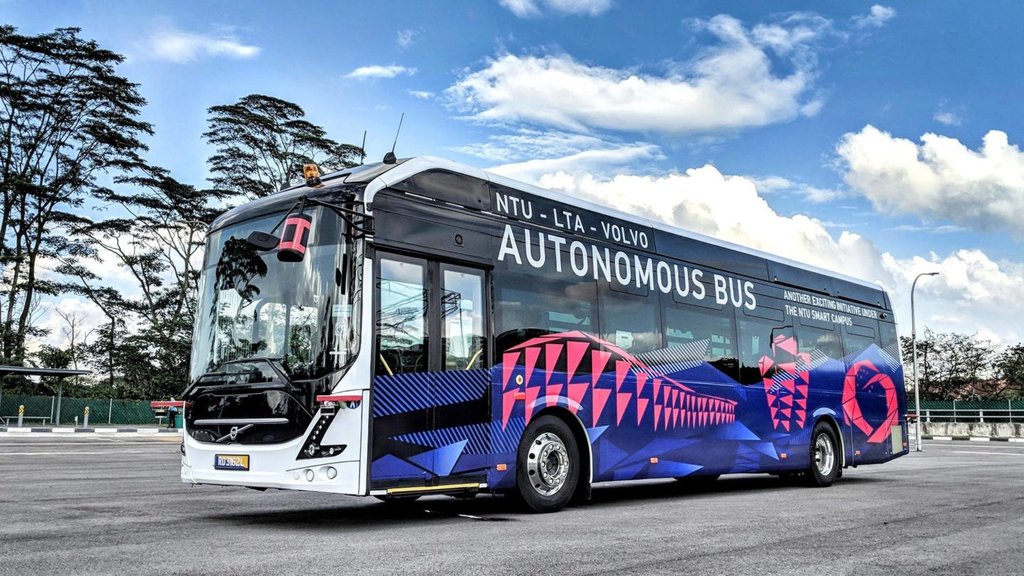video Automation
Volvo's world-first autonomous electric bus
Singapore is testing what is claimed to be the world’s first full-size autonomous electric bus. The result of a partnership between vehicle manufacturing giant Volvo and Nanyang Technological University (NTU) in Singapore, the bus is undergoing trials at the university campus, before being tested on public roads.
The single-decker autonomous electric bus, which is a modified version of the Volvo 7900 Electric, is 12m long and can carry almost 80 passengers.
It is a key early step towards mass-use autonomous public transport, offering lower running costs and increased safety compared to conventional alternatives. Promising quiet operation and zero emissions, it also uses 80% less energy than diesel-powered equivalents.
“We are very proud to be showcasing our electric bus featuring autonomous driving technology,” said Håkan Agnevall, president of Volvo Buses. “It represents a key milestone for the industry and is an important step towards our vision for a cleaner, safer and smarter city.”
Trialling the autonomous electric bus
While we are several years away from such autonomous electric busses being used as a part of day-to-day public transport, this trial is a vital part of making that future a reality.
It will be tested in partnership with Singapore’s Land Transport Authority (LTA) at the Centre of Excellence for Testing and Research of Autonomous vehicles at NTU (CETRAN), which is designed to replicate the realities of driving on Singapore’s roads. Once it has proved safe to do so, the bus will then move to real-world trials on public roads.
“The launch of the autonomous bus for on-road trials marks an important milestone in the joint project between LTA and NTU Singapore to develop autonomous buses for fixed routes and scheduled services,” said Lam Wee Shann, Chief Innovation and Technology Officer at Singapore’s Land Transport Authority.
“It is in line with Singapore’s vision of deploying autonomous vehicles to improve accessibility and connectivity for commuters. We will continue to work closely with NTU to facilitate the safe and robust testing of the autonomous vehicles.”

